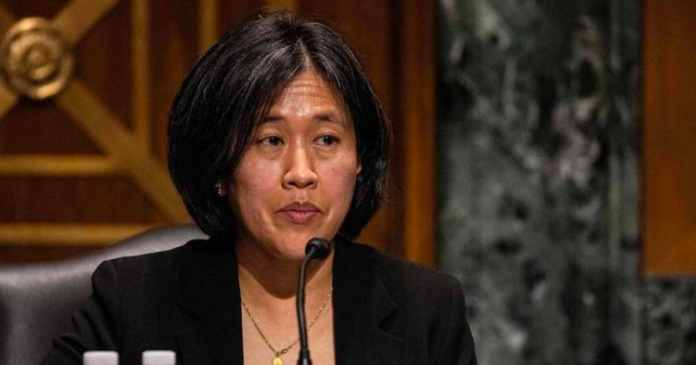The issue of Canada imposing digital restrictions on US products flared once again on Friday after a meeting between top officials from both countries.
While in Cancún, Mexico, US Trade Representative Katherine Tai pressed Liberal International Trade Minister Mary Ng to drop impending digital services taxes on American products.
Tai also urged the Canadian government to allow US shopping channels to operate in Canada, according to a readout from Tai’s office.
“Ambassador Tai underscored the need for Canada to fully meet its USMCA commitments, including on home shopping. In addition, she urged Canada to refrain from imposing a digital services tax while the OECD process continues this year,” the readout states.
Meanwhile, the readout from Ng’s office made no mention of Tai’s request related to shopping channels and only briefly skimmed over details of the digital services tax.
“Minister Ng urged Ambassador Tai to implement the OECD global tax arrangement,” Ng’s office claimed.
This isn’t the first time that US has raised concerns about the Canadian government’s push to impose restrictions on digital goods.
Last year, Tai raised similar concerns about recently passed legislation, Bill C-11 and Bill C-18.
The trade representative “expressed concerns” about how both laws would discriminate against US businesses and content creators.
“Ambassador Tai expressed concern about Canada’s proposed unilateral digital service tax and pending legislation in the Canadian Parliament that could impact digital streaming services and online news sharing and discriminate against U.S. businesses,” said Tai.
With Bill C-18, also known as the Online News Act, receiving royal assent, both Google and Meta have threatened to completely put an end to the sharing of Canadian news content on their platforms.
Effectively, Bill C-18 would ask social media giants to pay Canadian legacy media companies for links.












